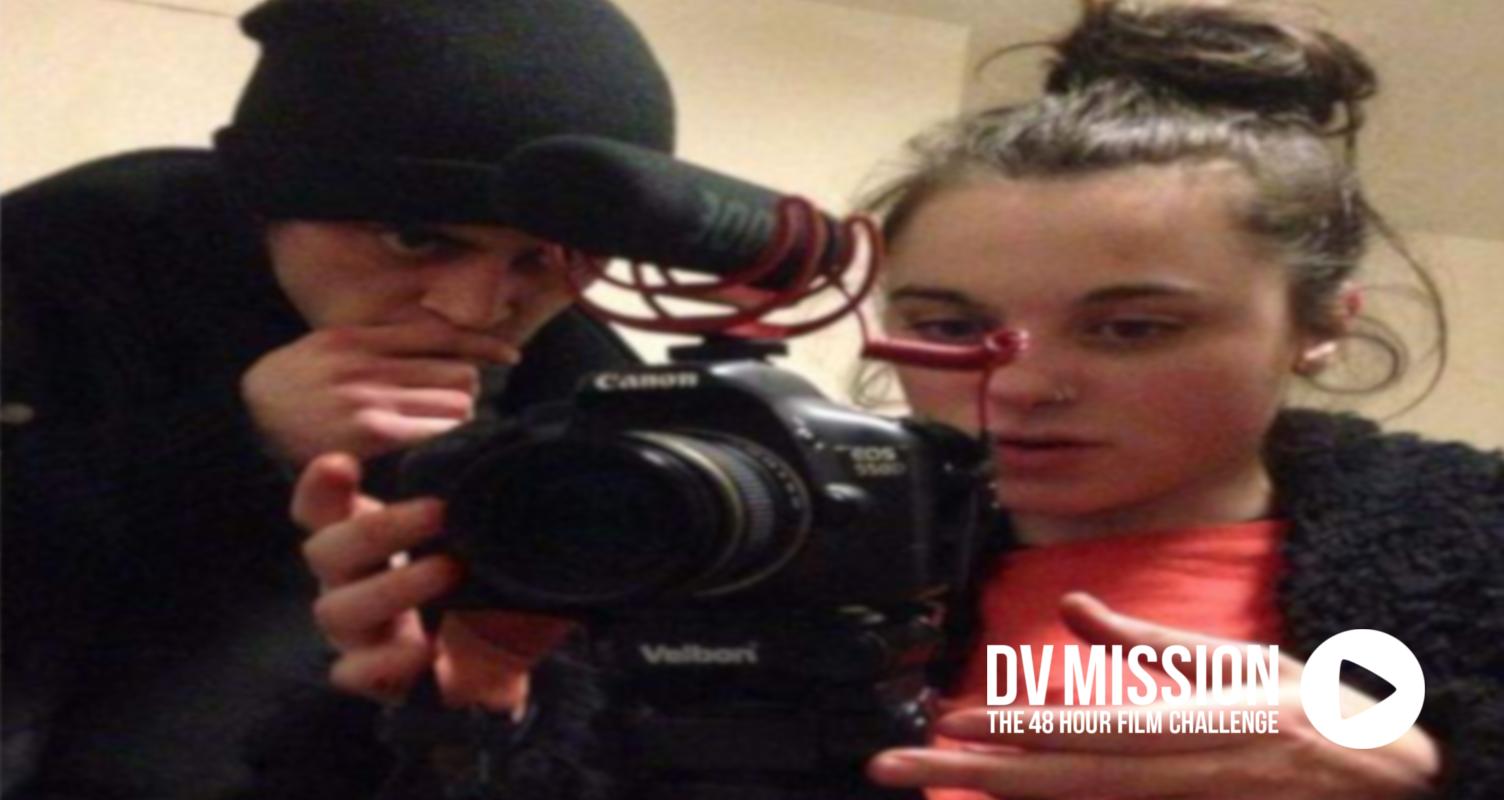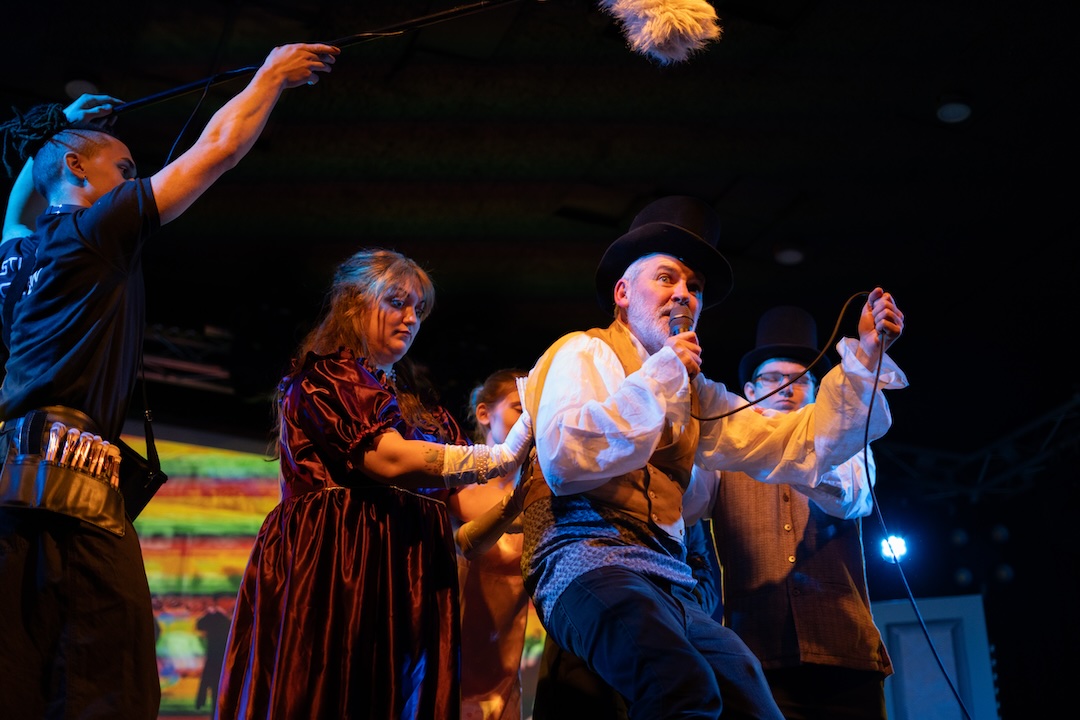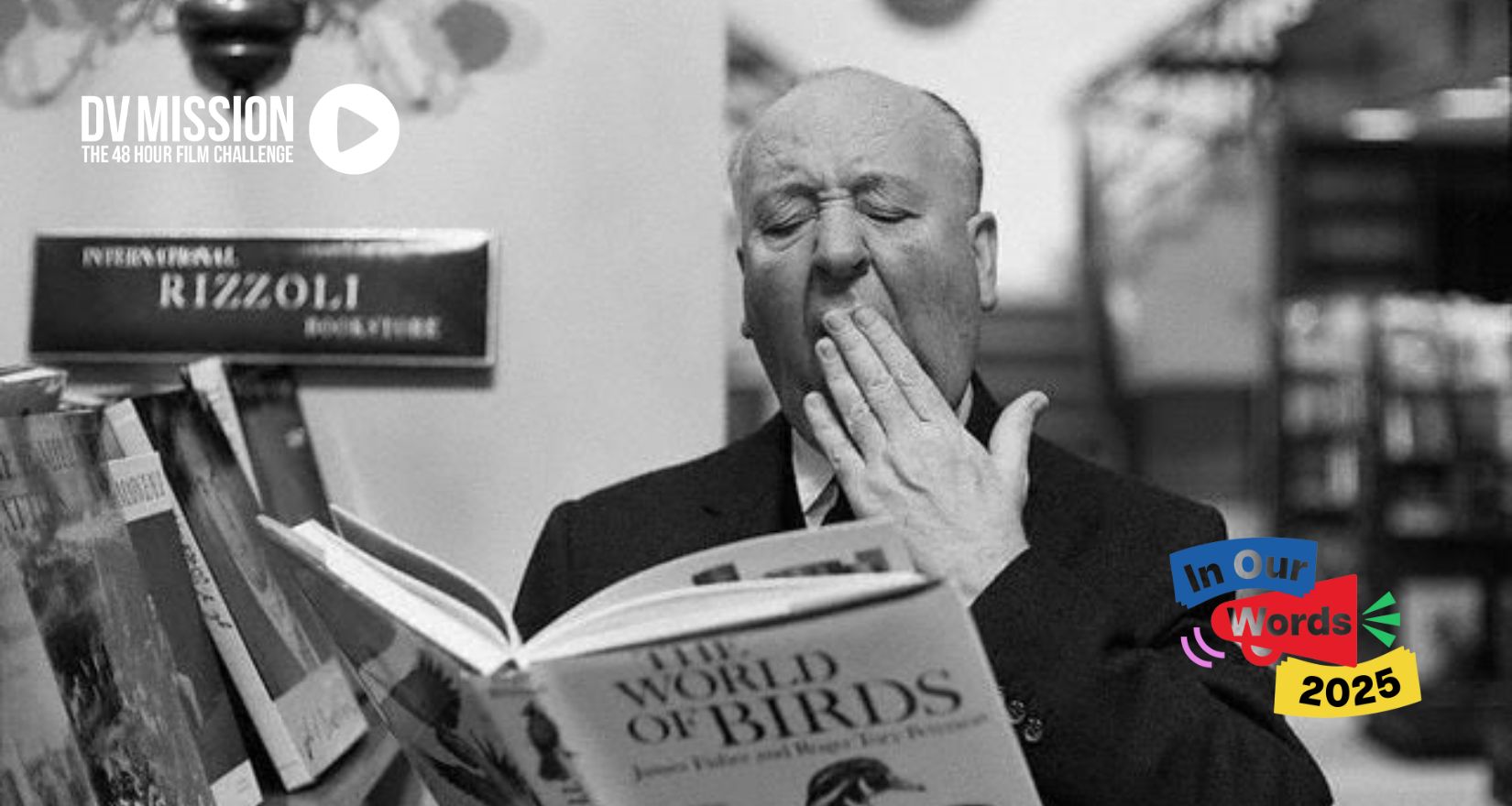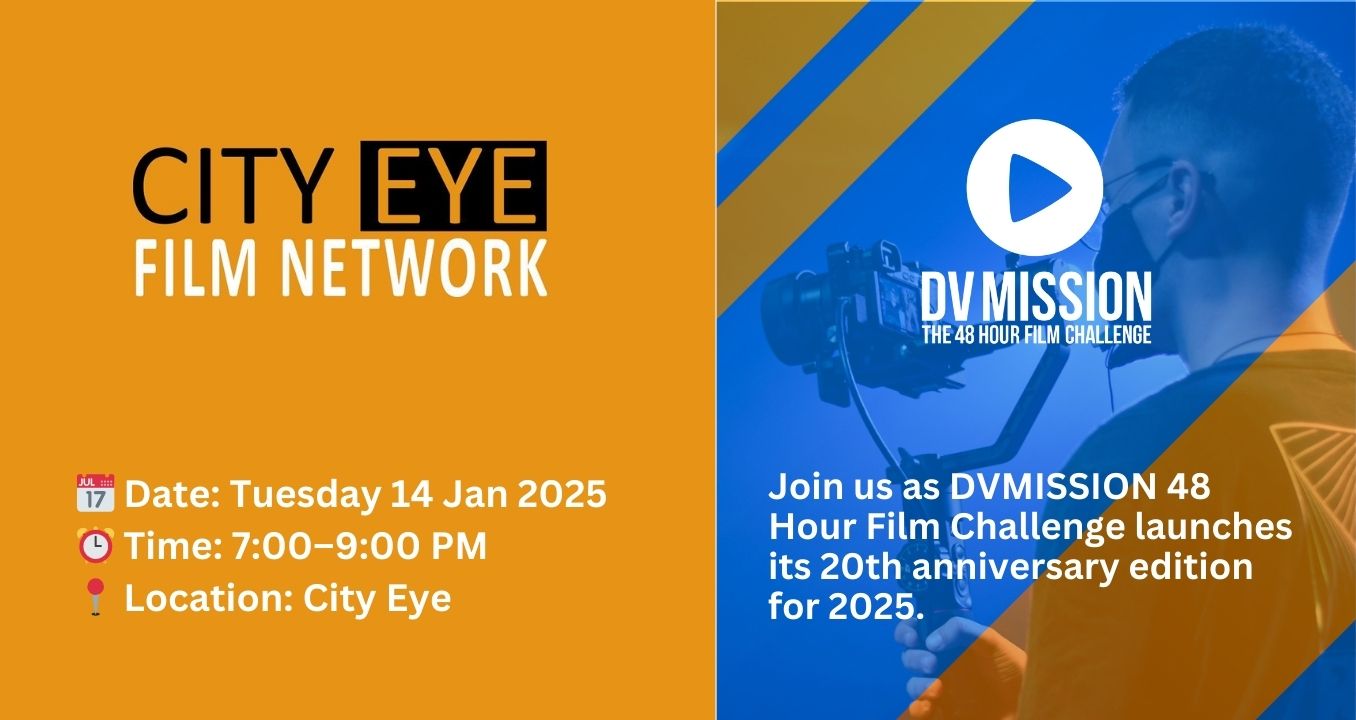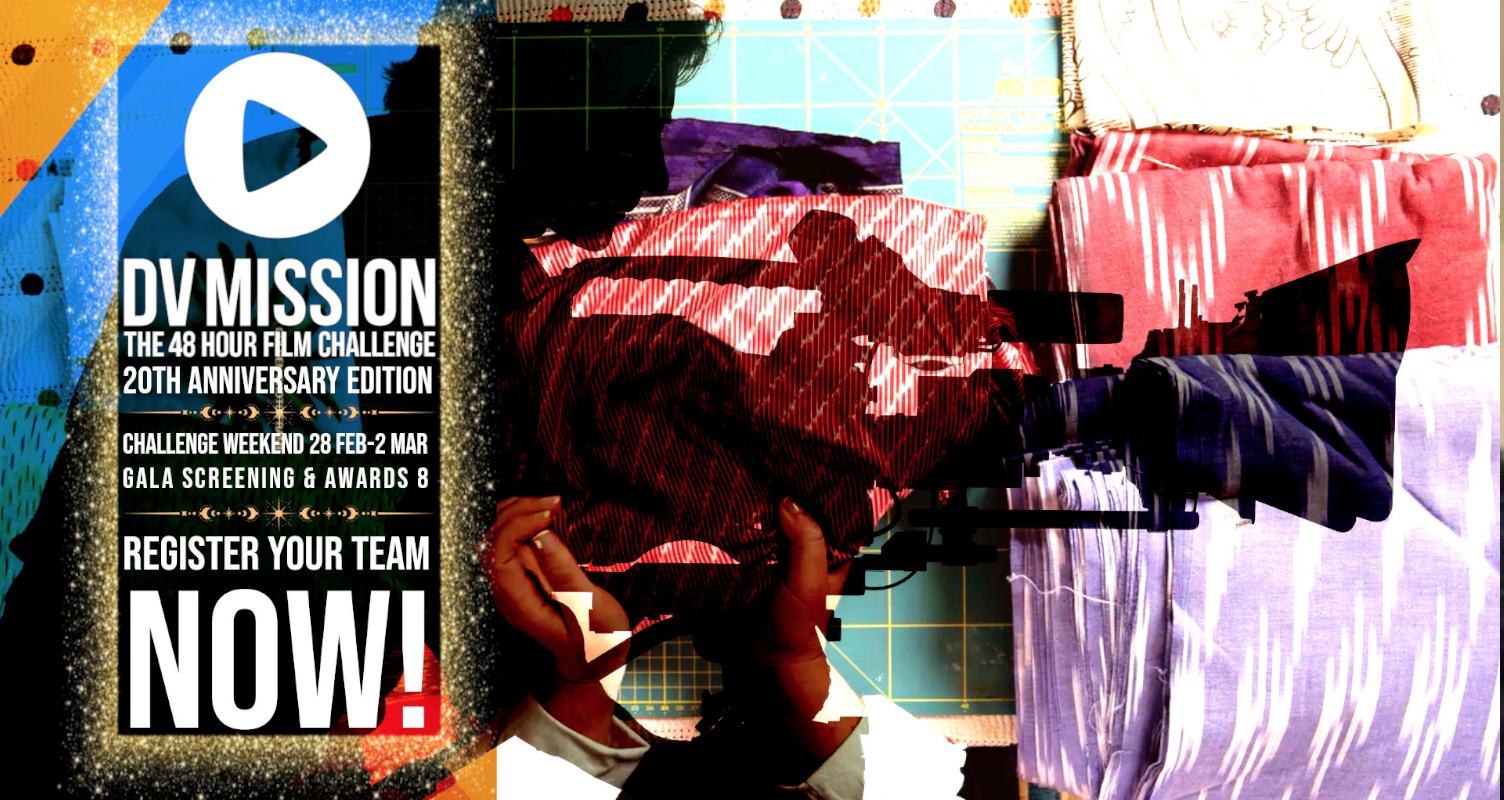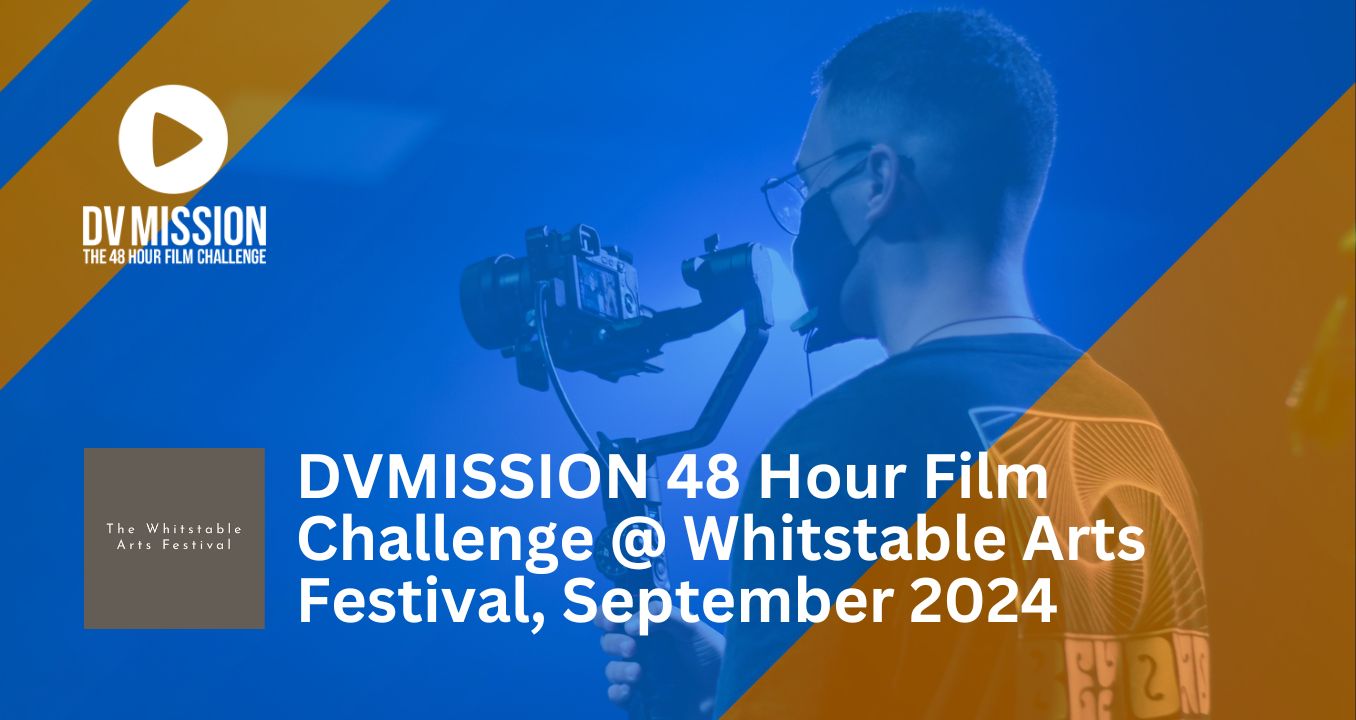In early December, I spoke with Thomas. A Portsmouth based filmmaker who met up with me in a local costa, to talk about the 48-hour film challenge, DVMISSION. I wanted to talk with Thomas to find out about his experiences creating films in 48 hours and what that means for the city it runs in.
“I think the first one might have been 2012, so I would have been between 19 and 20 when I started.” He continued, telling me about the years that followed. “There have been a couple of years I missed. I used to be involved in one of the other groups, but we went our separate ways in 2014. So, I missed a couple of years, and then did last year’s one. So, I think I’ve done about 4 or 5. I’ve been a part of a couple of different teams.”
“It’s intense…but it’s massively rewarding.”
The idea of making a film in 48 hours without even a days planning is a daunting task, so something I wanted to find out was what motivated Thomas to take part in it each year. What was he getting out of it? “Well the competition aspect is good because if you do manage to win something, the it gives you something to sell yourself on, that’s definitely part of it. And it’s interesting seeing other people’s films because there’s opportunities for collaborations with other people…so I’m always interested to go and take part because of that as well.” He pauses before saying “and you know you’ve got a guaranteed film after a weekend so.”
When I asked Thomas, what motivates him to do something as challenging as make a film in 48 hours, he looked around for a while, you could see him thinking deeply about the question he had just been asked. After a moment pause he looked up and said, “the chance of winning, it’s the chance of winning.” His answer to what he said was probably one of the most challenging questions was simple, but clear. He continued. “And like I said before, it allows you to have something guaranteed to put on your CV at the end of the weekend.” As a professional filmmaker, Thomas highlights the benefits of challenges like DVMISSION for him personally. “A lot of the time I end up using it as a testing ground for new things I want to do.” Questioning him further on his idea of DVMISSION being a playground for new ways of filming, he says, “For example if there’s a new technique I want to try out, or a few shots I want to try out that I’ve never done, I get to try them out in that, before putting them in another film I’d be working on independently.’
Our conversation continued, and we began to discuss equipment. Thomas is a filmmaker and has always had a love for film, so he had quite a collection of equipment to hand when it came to sign up to DVMISSION. “I use a Canon DSLR and a handful of lenses”. But what if you were a beginner and didn’t have that much equipment to hand? Well, as I quickly began to understand from our chat, “£20,000 or £200 of equipment, it’s still a fair fight.”
My chat with Thomas had been very insightful and I certainly learnt a lot about his experience of DVMISSION. But there was something else I wanted to discuss before we left the coffee shop. I wanted to talk to Thomas about the impact DVMISSION has had on the growth of the creative industries in the surrounding areas. DVMISSION is of course a Portsmouth based film festival and Thomas, is a Portsmouth based filmmaker, so I wanted to know his thoughts on the subject. “I think there’s been a certain amount of impact. You’ve got teams who come outside of Portsmouth to enter this, and I’m not sure as to whether it’s because of that, that it’s spreading or if it’s coming from what DVMISSION is doing for local film. I do think that whatever impact it is going to have, it hasn’t quite hit yet.” He paused for a few seconds, before continuing, “It’s the biggest 48-hour film challenge we’ve got in the South at the moment, so it could get a lot more impactful so it’s important it carries on. I’m glad it’s there because it’s clearly inspired other people to do the same thing, so at least, it’s opening people’s eyes up to the potential of film events and competition in Portsmouth.”
Talking about his personal benefit from DVMISSION, Thomas said, “I think it’s easy to have a problem with time management when you get into film. You can start putting creativity on a pedestal and it can become more important than the time you’ve actually got. Being forced to take that step back and look at what’s actually possible. You’ve got to make sacrifices, you’ve got to adapt the way you choose to make films a bit. I think it’s helped me benefit in that. I’ve developed my time management skills a lot more through DVMISSION.”
We began to move our conversation to a focus on what happens after that crazy weekend of film creation. The awards. For those who take part in DVMISSION, it’s a competition but it’s also a bit of fun. “After the films have played, you could go to any of the teams and talk to them. They would be more than happy to talk to you, more than happy to give you advice.” He looked up and smiled, “They might even try to take you into their team for the next year. It’s healthy competition.”
“If there is a chance to support local films, and someone has advertised it well enough, like DVMISSION always do, then I’m going to be there”
Film challenges like DVMISSION are of course funded by those involved. But it is of great importance that they get support so that they can grow and carry on for years to come. To do this, they need the support of local businesses. Speaking of DVMISSION, Thomas said, “I mean I think it has definitely got the most exposure of any competition definitely in Portsmouth. It’s almost illogical to be a business in the area and not be involved. You’re going to have so many eyes on your business. You can meet people that can also do jobs for you. It does need the local community and businesses to get involved in it so it can grow to what it can be…to give it that bigger push. There really isn’t anything else like it, trying to do it at that scale. It would be a shame if that was the peak of the mountain. It could be bigger and much more beneficial to the whole community, not just for filmmakers but for the industry of Portsmouth.”
By Lucy Goodyear
